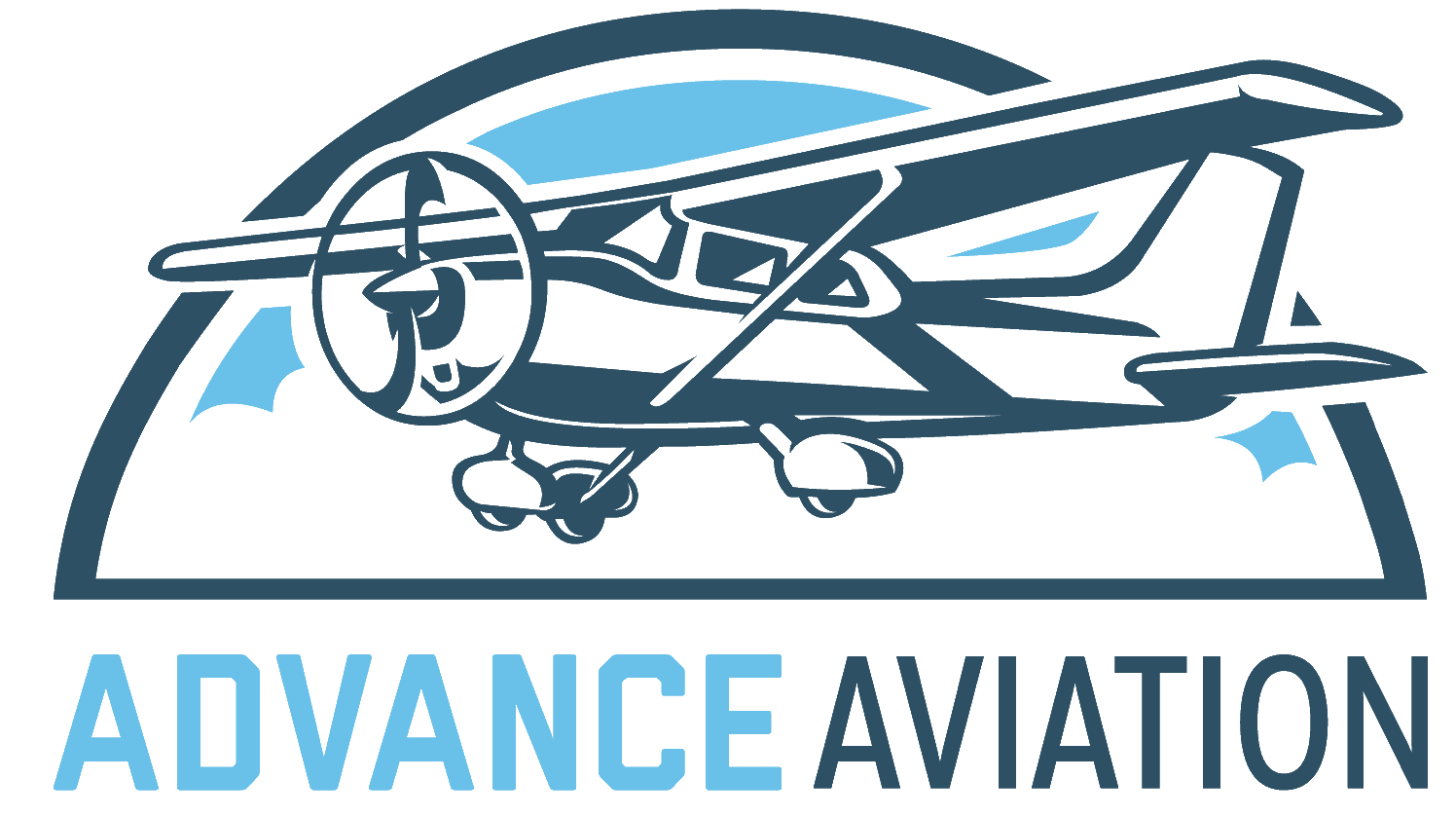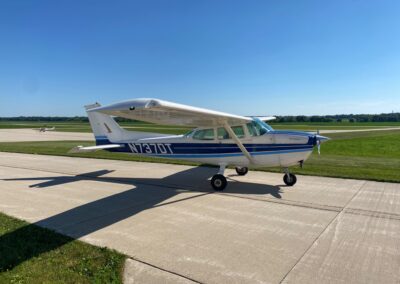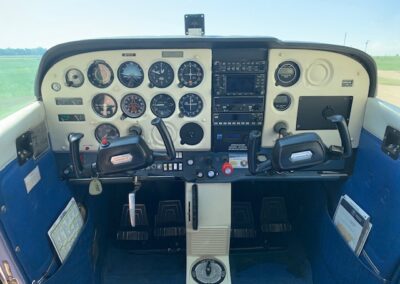Our Services
Train Pilots - what we do best!
Learn to Fly with US
Our Services
Discovery Flight
A discovery flight allows you to fly an airplane with a Certified Flight Instructor to determine if flying is for you.
Private Pilot Certificate
A private pilot certificate is for those who have always wanted to fly and is the starting point for those who have higher aviation goals.
Advanced Certificates and Ratings
Already a Private Pilot? Let us help you advance your skills by completing your Instrument Rating or Commercial Pilot Certificate.
Flight Reviews & Instrument Proficiency Checks
Let us help you maintain your flight privileges by completing your Flight Review or Instrument Proficiency Check.
Airplane Rental
Want to rent an airplane? We’ve got a Cessna 172N available at a great rate.
PILOT services
Need a pilot? Need to have a plane moved from one location to another? Call us, we can help.
Get Started
Discovery Flight
A discovery flight is the best way to learn if flying is for you.
You will control the airplane on the ground and in the air under the supervision of an FAA Certified Flight Instructor.
A discovery flight is a great option if you’re considering a Private Pilot Certificate and also makes a unique gift.
A discovery flight, including tax, costs $195.
Flight Training
PRIVATE PILOT TRAINING
Advance Aviation focuses on helping you achieve your goal of earning a Private Pilot Certificate. Our Certified Flight Instructors spend the time and effort to get to know each student and provide personalized instruction aligning with your learning style, goals and schedule.
Learn more about the requirements for earning a Private Pilot Certificate by clicking the box below.
Private Pilot Requirements
To be eligible for an FAA Private Pilot Certificate, you must meet the following requirements:
– Be at least 16 years old to fly solo.
– Be at least 17 years old to receive your private pilot certificate.
– Read, speak, write, and understand English.
– Obtain at least a third-class medical certificate.
– Successfully complete the flight training requirements and the knowledge exam.
– Pass a practical exam consisting of an oral exam and a flight test. The oral exam is a scenario based discussion of a cross country flight you will have planned. The flight test is a demonstration of the maneuvers covered during your flight training.
The FAA requirements for obtaining a Private Pilot Certificate with an Airplane Single Engine Land Rating are:
A minimum of 40 hours flying time (the national average is closer to 60 hours) which consists of at least:
- A minimum of 20 hours minimum of flight training with an instructor on the Private Pilot areas of operation including:
3 hours of cross country flight training in a single engine airplane;
3 hours of night flight training in a single engine airplane that includes at least:
a) 1 cross country flight of over 100 nm total distance; and
b) 10 Takeoffs and 10 landings to a full stop with each involving a flight in the traffic pattern at an airport
3 hours of flight training by reference to instruments in a single engine airplane; and
3 hours of flight training in a single engine airplane within the 60 days prior to the practical test
– A minimum of 10 hours of solo flying in a single engine airplane on the Private Pilot areas of operation including:
5 hours of solo cross country flying;
1 solo cross country flight of at least 150nm total distance with full stop landings at 3 points and one segment of at least 50nm between takeoffs and landings; and
3 takeoffs and landings to a full stop at an airport with an operating control tower.
Have questions?
Call us and let us review your goals and develop a plan to help you achieve them.
Advanced Certificates & Ratings
INSTRUMENT RATING
An instrument rating can be added on to a Private or Commercial Pilot certificate. Instrument training teaches the pilot to safely fly the airplane in a variety of weather conditions while exclusively utilizing the aircraft’s instruments.
Learn more about the requirements for earning a Instrument Rating by clicking the box below.
Instrument Rating Requirements
To be eligible to pursue an Instrument Rating, the applicant must:
– Hold at least a Private Pilot Certificate
– Be able to read, write, and converse fluently in English.
– Hold a current FAA Medical Certificate.
– Receive and log ground training from an authorized instructor (i.e. ground school course) or complete a home-study course using an instrument
textbook and/or videos.
You must accumulate the following flight experience, per FAR 61.65 to qualify to take the Instrument Practical Test:
– At least 50 hours of cross-country flight time as pilot in command, which can include solo cross-country time as a student pilot. Each cross-country must have a landing at an airport that is at least a straight-line distance of more than 50 NM from the original departure point.
– At least one cross-country flight that is performed under IFR and transits a distance of at least 250 NM along airways or ATC-directed routing and includes an instrument approach at each airport so that a total of three different kinds of instrument approaches are performed.
– A total of 40 hours of actual or simulated instrument time, including a minimum of 15 hours of instrument flight training from a Flight Instructor certified to teach the instrument rating (CFII). Up to 20 hours of the instrument training may be accomplished in an approved flight simulator or flight training device if the training was provided by an authorized instructor (CFII).
– In the 2 calendar months prior to the practical test, the candidate needs to log 3 hours of instrument training in an airplane that is appropriate to the instrument-airplane rating from a CFII in preparation for the test.
– Receive and log training, as well as obtain a logbook endorsement from your CFII on the following areas of operation: preflight preparation, preflight procedures, air traffic control clearances and procedures, flight by reference to instruments, navigation systems, instrument approach procedures, emergency operations, and postflight procedures.
– Successfully complete the instrument rating practical test (an oral exam and flight test), as specified in the Airman Certification Standards (ACS) for the instrument rating, conducted by an FAA designated examiner.
Have questions?
Call us and let us review your goals and develop a plan to help you achieve them.
COMMERCIAL PILOT CERTIFICATE
A commercial pilot certificate allows a pilot to be compensated for their flying services. There are many types of commercial flying operations such as cargo, charter, passenger, aerial survey and others. The FAA outlines specific regulations and requirements for the various types of commercial flying.
Learn more about the requirements for earning a Commercial Pilot Certificate by clicking the box below.
Commercial Pilot Certificate
Requirements to Obtain a Commercial Pilot Certificate:
– Be able to read, write, and converse fluently in English.
– Be at least 18 years of age.
– Hold at least a current third-class FAA medical certificate. Later, if your flying requires a commercial pilot certificate, you must hold a second-
class medical certificate.
– Hold an instrument rating. A commercial pilot is presumed to have an instrument rating. If not, his/her commercial pilot certificate will be endorsed
with a prohibition against carrying passengers for hire on day VFR flights beyond 50 NM or at night.
– Receive and log ground training from an authorized instructor or complete a home-study course.
– Pass a knowledge test with a score of 70% or better.
– Accumulate appropriate flight experience and instruction (see 14 CFR 61.129). A total of 250 hours of flight time is required.
– Successfully complete a practical test, consisting of an oral exam and flight test, given by an FAA inspector or Designated Pilot Examiner; the practical test will be conducted as specified in the FAA’s Commercial Pilot Airman Certification Standards.
Have questions?
Call us to review your goals and let us develop a plan to help you achieve them.
FLIGHT REVIEWS & INSTRUMENT PROFICIENCY CHECKS
The FAA requires pilots to complete a Flight Review every 24 calendar months to act as pilot in command of an aircraft. We will discuss the type of flying you normally perform and will tailor the review to satisfy FAA requirements and meet your goals.
Instrument Proficiency Checks satisfy a similar FAA requirement for instrument rated pilots. Successful completion of an Instrument Proficiency Check will allow you to safely act as pilot in command of an aircraft in instrument meteorological conditions.
Have questions?
Call us to review your goals and let us develop a plan to help you achieve them.
Airplane Rental
Rent an airplane from us for your flight training or to build time if you are already a pilot.
Airplane Rental - Cessna 172N
1978 Cessna 172N
4 Seats
2300 lb Gross Weight
160 Horsepower
115 Knot Cruise
IFR Garmin GNS 430W GPS
Garmin GI106A VOR/LOC/GS/GPS
Garmin 345 Audio Panel
King 165A Nav/Com
King KI206 VOR/LOC
Bendix King (Tru Trak) AeroCruze 100 AutoPilot
ADSB-Out
Portable Sentry ADSB-IN
Have questions?
Call us to review your goals and let us develop a plan to help you achieve them.
Pilot Services
Own an airplane and need a pilot? We can fly you to business meetings or vacation locations. We can reposition your plane for maintenance or a relocation.
Have questions?
Call us if you own an airplane and need a pilot. Let us review your needs and develop a plan to help you achieve them.


